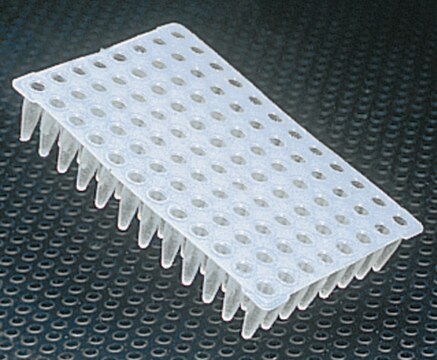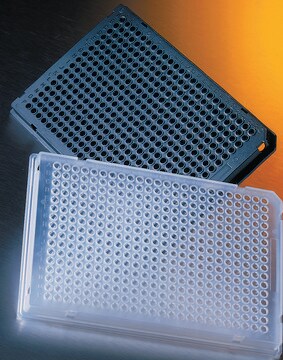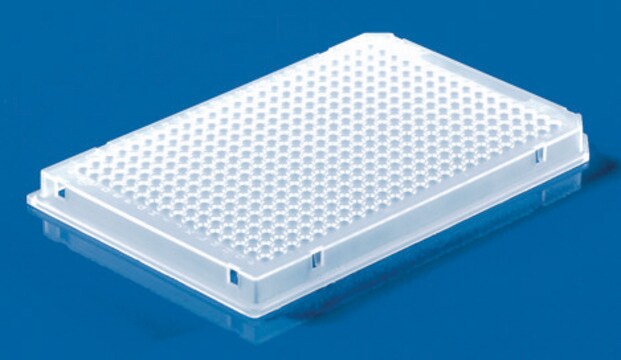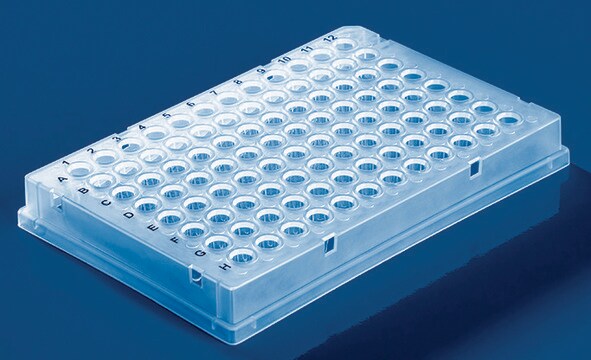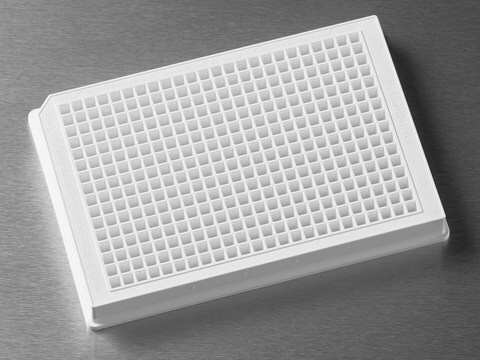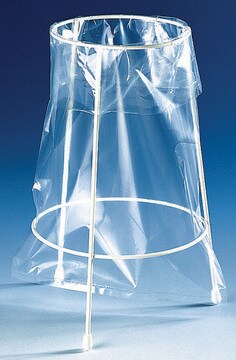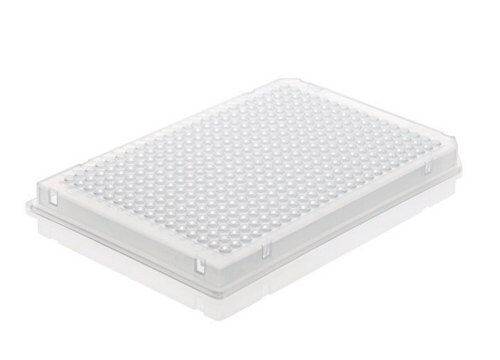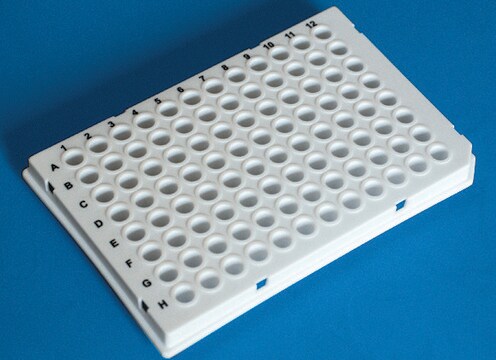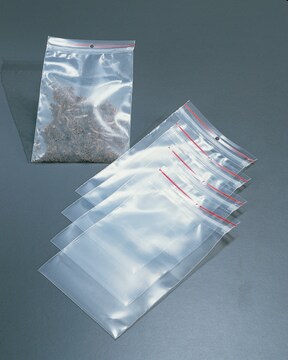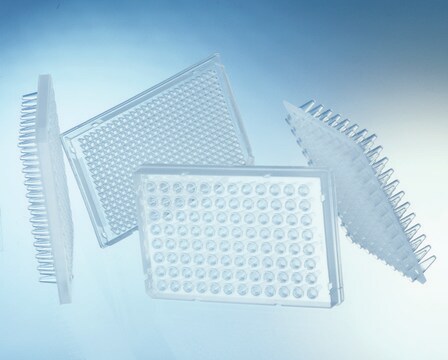Z374911
PCR multiwell plates
size 384 wells, polypropylene, skirt, non-sterile
Synonym(e):
384 multiwell PCR plate, 384 well PCR microplate, 384 well PCR plate, 384 well microtiter plate
About This Item
Empfohlene Produkte
Materialien
colorless polypropylene
polypropylene
Sterilität
non-sterile
non-sterile
Leistungsmerkmale
skirt
Verpackung
case of 50 ea
Hersteller/Markenname
Sorenson 39620
Methode(n)
PCR: suitable
Größe
384 wells
Well-Volumen
40 μL
Well-Arbeitsvolumen
25 μL
Eignung
suitable for (PCR, RT-PCR or DNA purification applications)
Anwendung(en)
agriculture
Suchen Sie nach ähnlichen Produkten? Aufrufen Leitfaden zum Produktvergleich
Allgemeine Beschreibung
Leistungsmerkmale und Vorteile
- Virgin polypropylene
- Fully autoclavable
- Certified DNase- and RNase-free
- Wells have thin walls for rapid temperature equilibration and reduced cycle time
Analysenzertifikate (COA)
Suchen Sie nach Analysenzertifikate (COA), indem Sie die Lot-/Chargennummer des Produkts eingeben. Lot- und Chargennummern sind auf dem Produktetikett hinter den Wörtern ‘Lot’ oder ‘Batch’ (Lot oder Charge) zu finden.
Besitzen Sie dieses Produkt bereits?
In der Dokumentenbibliothek finden Sie die Dokumentation zu den Produkten, die Sie kürzlich erworben haben.
Kunden haben sich ebenfalls angesehen
Protokolle
Reverse transcription (RT) is the process of converting RNA to cDNA using a reverse transcriptase enzyme and dNTPs.
The most common application for qPCR is the measurement of a gene transcript or copy number quantity relative to one or more reference genes using probe detection.
Hot Start dNTPs are modified with a thermolabile protecting group at the 3’ terminus. The presence of this modification blocks nucleotide incorporation by DNA polymerase until the nucleotide protecting group is removed during a heat activation step.
Das Protokoll zur Optimierung der Primerkonzentration ist ein Ansatz zur Erstellung einer Reaktionsmatrix. Sie wird verwendet, um eine Reihe von Konzentrationen für jeden Primer im Abgleich zu verschiedenen Konzentrationen des Partnerprimers zu testen.
Unser Team von Wissenschaftlern verfügt über Erfahrung in allen Forschungsbereichen einschließlich Life Science, Materialwissenschaften, chemischer Synthese, Chromatographie, Analytik und vielen mehr..
Setzen Sie sich mit dem technischen Dienst in Verbindung.